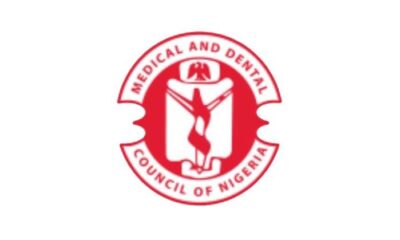Oil & Energy
Shell, Community’s Rift Delays Work At Adibawa Fields
A lingering face- off be
tween Shell Petroleum Development Company (SPDC) and its host communities at Adibawa oil fields has hampered oil spill response for a leak that occurred on July 12, further endangering the environment.
Shell said that the oil leakage from its oil fields located in Edagberi community in Rivers was caused by thieves who targeted the Well Head.
According to a statement from Mr Joseph Obari, an SPDC Spokesperson, members of the host community were frustrating the efforts of the oil firm to recover spilled crude and remediate the polluted environment.
“Following a reported spill at Adibawa- well-8 in the Eastern Niger Delta reported July 12, the statutory Joint Investigation Visit remains delayed.
“The Caretaker Committee Chairman of Ahoada West Local Government, Ikechukwu Obuzor is leading mediation after the leadership of the Edagberi Betterland community prevented the representatives of industry regulatory agencies, the Rivers State Ministry of Environment and SPDC from accessing the spill site at Adibawa well-8 for crude oil recovery and remediation operations.
“After a seeming agreement last week by the leadership of Edagberi Betterland community for oil recovery to commence, a group of youths demanding payment of money and employment refused SPDC Oil Spill Response team access to the site.
“SPDC regrets the continued delay to recovery of the spilled oil.
“On July 12, SPDC received reports of a spill at Adibawa- well-8 in the Eastern Niger Delta. The spill appeared to have been caused by an attempted theft of the wellhead.
“Upon receiving reports of the incident SPDC took containment measures including the construction of dykes, pits and the deployment of booms to prevent further impact on the environment.
“The leak was stopped on July 15, but attempts to conduct the statutory Joint Investigation Visit (JIV) on July 16 and 17 to determine the cause and extent of the leak were unsuccessful.
“Without the JIV, SPDC cannot carry out badly-needed clean up and remediation of the site.” Obari said.
However, Chief Sunny Jacob Ubele, paramount ruler of Edagberi community said on Friday that the allegations that the community denied SPDC access were false and baseless.
He said that the community cooperated with officials of the oil firm but expressed reservations when Shell officials attempted to manipulate the Joint Investigation Visit (JIV) procedure.
“It is very untrue that we denied them access, if we did how did they manage to stop the spill?, they had fixed a JIV on our meeting day and we told them to fix it for the next day.
“When we got there with them we found out they went to the site unilaterally and tampered with the evidences that would assist in arriving at conclusions, so we told them that we were excluded from that exercise.
“We pointed out to them that what they did constituted a JIV without community and we declined to sign the JIV reports because we were not part of it and the JIV was inconclusive.
“There is not truth in the allegations, today the council of chief met and restated that they should commence recovery of crude from the site, Ubele said.
The paramount ruler explained that the youths had merely insisted that the 10 persons from the community hired to provide labour were grossly inadequate.
“As we speak, all contentions have been resolved as the oil firm had increased the labour slots for the oil recovery efforts from 10 to 25 slots.
“They commenced recovery of spilled crude from the impacted areas on Thursday, “ The Monarch said.
John David, an Oil industry observer, condemned the neglect of the environment by the two contending parties for material gains.
“What we saw in the Adibawa site is condemnable and I do not spare any party of blames, How come Shell has lost goodwill with its communities that they will need a Council Chairman to broker peace? And Shell has a Community Relations Department under a manager.
“On the side of the community they thought they were holding the oil firm to ransom, but it is their own environment that suffered while they were agitating for labour jobs which is temporary and transient,” David submitted.
A visit to Adibawa Oil Well 8 location showed that members of the community were fetching the spilled crude from the well head.
Oil & Energy
FG Explains Sulphur Content Review In Diesel Production
The Federal Government has offered explanation with regard to recent changes to fuel sulphur content standards for diesel.
The Government said the change was part of a regional harmonisation effort, not a relaxation of regulations for local refineries.
The Chief Executive, Nigerian Midstream and Downstream Petroleum Regulatory Authority (NMDPRA), Farouk Ahmed, told newsmen that the move was only adhering to a 2020 decision by the Economic Community of West African States (ECOWAS) which mandated a gradual shift to cleaner fuels across the region.
Ahmed said the new limits comply with the decision by ECOWAS that mandated stricter fuel specifications, with enforcement starting in January 2021 for non-ECOWAS imports and January 2025 for ECOWAS refineries.
“We are merely implementing the ECOWAS decision adopted in 2020. So, a local refinery with a 650 ppm sulphur in its product is permissible and safe under the ECOWAS rule until January next year where a uniform standard would apply to both the locally refined and imported products outside West Africa”, Ahmed said.
He said importers were notified of the progressive reduction in allowable sulphur content, reaching 200 ppm this month from 300 ppm in February, well before the giant Dangote refinery began supplying diesel.
Recall that an S&P Global report, last week, noted a significant shift in the West African fuel market after Nigeria altered its maximum diesel sulphur content from 200 parts per million (ppm) to around 650 ppm, sparking concerns it might be lowering its standards to accommodate domestically produced diesel which exceeds the 200 ppm cap.
High sulphur content in fuels can damage engines and contribute to air pollution. Nevertheless, the ECOWAS rule currently allows locally produced fuel to have a higher sulphur content until January 2025.
At that point, a uniform standard of below 5 ppm will apply to both domestic refining and imports from outside West Africa.
Importers were previously permitted to bring in diesel with a sulphur content between 1,500 ppm and 3,000 ppm.
It would be noted that the shift to cleaner fuels aligns with global environmental efforts and ensures a level playing field for regional refiners.
Oil & Energy
PHED Implements April 2024 Supplementary Order To MYTO
The Port Harcourt Electricity Distribution (PHED) plc says it has commenced implementation of the April 2024 Supplementary Order to the MYTO in its franchise area while assuring customers of improved service delivery.
The Supplementary order, which took effect on April 3, 2024, emphasizes provisions of the MYTO applicable to customers on the Band A segment taking into consideration other favorable obligations by the service provider to Band A customers.
The Head, Corporate Communications of the company, Olubukola Ilvebare, revealed that under the new tariff regime, customers on Band A Feeders who typically receive a minimum supply of power for 20hours per day, would now be obliged to pay N225/kwh.
“According to the Order, this new tariff is modeled to cushion the effects of recent shifts in key economic indices such as inflation rates, foreign exchange rates, gas prices, as well as enable improved delivery of other responsibilities across the value chain which impact operational efficiencies and ability to reliably supply power to esteemed customers.
“PHED assures Band A customers of full compliance with the objectives of the new tariff order”, he stated.
Ilvebare also said the management team was committed to delivering of optimal and quality services in this cost reflective dispensation.
The PHED further informed its esteemed customers on the other service Bands of B, C D & E, that their tariff remains unchanged, adding that the recently implemented supplementary order was only APPLICABLE to customers on Band A Feeders.
Oil & Energy
PH Refinery: NNPCL Signs Agreement For 100,000bpd-Capacity Facility Construction

The Nigerian National Petroleum Company Ltd (NNPCL) has announced the signing of an agreement with African Refinery for a share subscription agreement with Port-Harcourt Refinery.
The agreement would see the co-location of a 100,000bpd refinery within the Port-Harcourt Refinery complex.
This was disclosed in a press statement on the company’s official X handle detailing the nitty-gritty of the deal.
According to the NNPCL, the new refinery, when operational, would produce PMS, AGO, ATK, LPG for both the local and international markets.
It stated, “NNPC Limited’s moves to boost local refining capacity witnessed a boost today with the signing of share subscription agreement between NNPC Limited and African Refinery Port Harcourt Limited for the co-location of a 100,000bpd capacity refinery within the PHRC complex.
“The signing of the agreement is a significant step towards setting in motion the process of building a new refinery which, when fully operational, will supply PMS, AGO, ATK, LPG, and other petroleum products to the local and international markets and provide employment opportunities for Nigerians.
By: Lady Godknows Ogbulu
-

 Nation5 days ago
Nation5 days agoYahaya Bello: Senator Hails EFCC’s Probe Of N80.2bn Fraud
-

 Niger Delta4 days ago
Niger Delta4 days agoMDCN Clears Asaba Specialist Hospital As Novena University Teaching Hospital
-

 Politics4 days ago
Politics4 days agoFubara Tasks Rivers Stakeholders On Political, Economic Emancipation …Commissions NAVAL Training Command Headquarters At Ebubu
-

 Foreign5 days ago
Foreign5 days agoMunitions Explosion At Cambodian Army Base Kills 20 soldiers
-

 Oil & Energy4 days ago
Oil & Energy4 days agoNigeria Loses Over 300,000 Barrels Of Crude Oil Daily To Theft – Abbas
-

 Nation9 hours ago
Nation9 hours agoVCDF in Partnership with LDSVA Sensitise Women on Gender Equality, Financial Literacy & Entrepreneurship
-

 News4 days ago
News4 days agoFubara Tasks GPDA On Prosperous, Liveable City
-

 Environment4 days ago
Environment4 days agoWED:Activists Task Govt On Plastic Pollution, Synophom Ban

